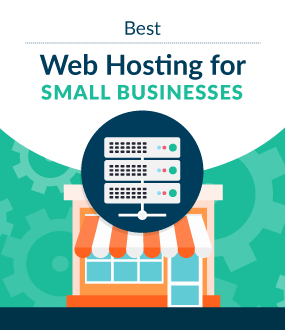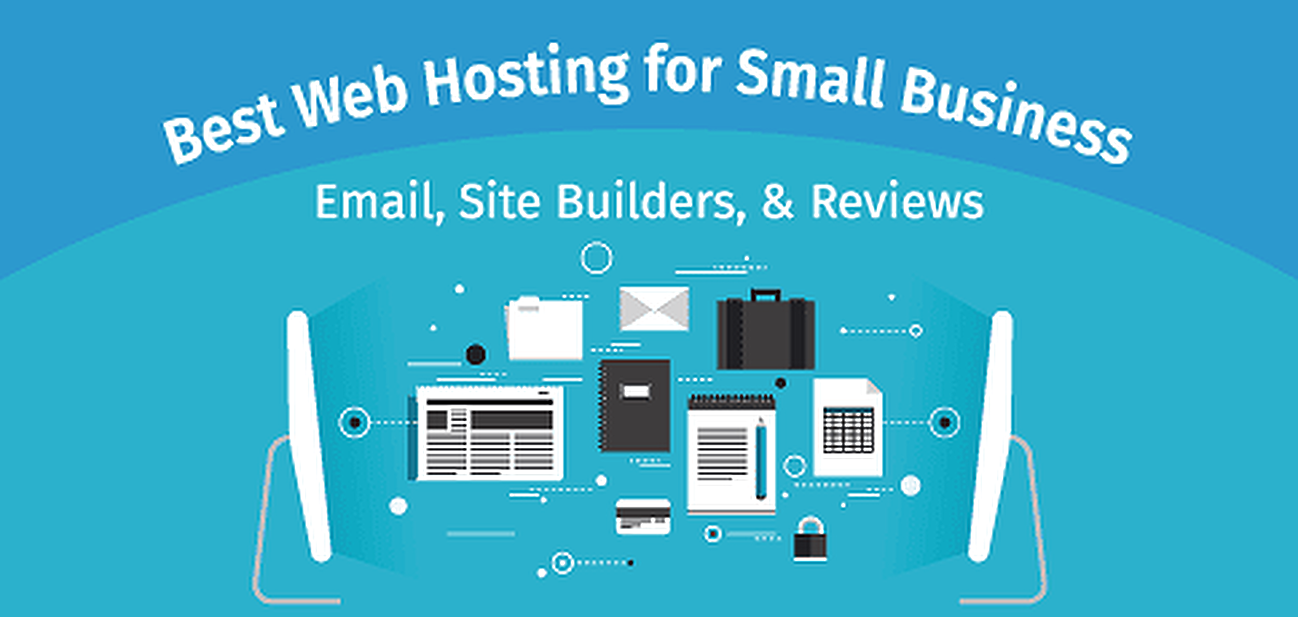Best Hosting Website for Small Business: Top Picks
Finding the right hosting website is crucial for small businesses. It impacts your site’s performance and your audience’s experience.
Small businesses need reliable hosting to succeed online. A good host ensures your website runs smoothly, loads quickly, and stays secure. With many options available, choosing the best hosting service can be challenging. You need one that fits your business needs and budget.
The right host supports your growth without technical issues. It offers features like easy site management, excellent customer support, and scalability. Small businesses thrive when they have a strong online presence. Your hosting choice is a key part of this. Let’s explore the options and find the best hosting website for your small business.

Credit: www.sitesaga.com
Importance Of Choosing The Right Hosting
Choosing the right hosting for a small business is crucial. It impacts your website’s performance and reliability. A good hosting service ensures your website runs smoothly. Visitors enjoy a seamless experience. This builds trust and encourages them to return. Poor hosting can lead to slow loading times. This frustrates users and drives them away. This can harm your business reputation and growth.
Impact On Business Growth
Reliable hosting boosts your business growth. It provides fast load times, which enhance user experience. A quick website keeps visitors engaged. This increases the chances of conversions. Good hosting supports your website during traffic spikes. Your site remains stable and accessible. This prevents potential loss of customers. It also aids in SEO performance. Search engines favor websites that load quickly. A higher rank attracts more visitors.
Factors To Consider
Consider several factors when choosing hosting. Look at the uptime guarantee. A higher percentage means better reliability. Check the customer support quality. Responsive support solves issues quickly. Evaluate the scalability options. As your business grows, your hosting should adapt. Consider the security features. Protecting your site from threats is vital. Look at the pricing plans. They should fit your budget without compromising quality. Finally, read reviews from other small businesses. Their experiences provide valuable insights.
Shared Hosting For Budget-friendly Solutions
Shared hosting is an excellent choice for small businesses. It offers budget-friendly solutions to meet basic website needs. With shared hosting, multiple websites share the same server space. This approach reduces costs, making it ideal for startups. Let’s explore the advantages and limitations of shared hosting.
Advantages Of Shared Hosting
Shared hosting is cost-effective. Lower expenses mean more savings for your business. It is easy to set up, even for beginners. Most providers offer user-friendly interfaces and support. Maintenance is handled by the hosting company. You focus on your business, not server management. Shared hosting plans often include essential features. These can be email accounts, databases, and security measures.
Limitations To Be Aware Of
Shared hosting has some limitations. Performance can be affected by other users on the server. High traffic on one site may slow down others. Resources are shared, so there are limits on memory and storage. It may not handle large-scale projects efficiently. Security risks can arise from sharing server space. If one site is compromised, others may be at risk. Customization options are limited compared to dedicated hosting.
Vps Hosting For Enhanced Performance
VPS hosting boosts small business performance with dedicated resources and flexibility. Ideal for growing needs, it ensures faster website loading. Opt for reliable hosting to enhance customer experience and online presence.
In today’s digital age, a small business needs robust online presence to thrive. One powerful tool to achieve this is VPS hosting. Unlike shared hosting, where resources are spread thin across several users, VPS hosting provides dedicated resources to your website, ensuring enhanced performance, greater control, and scalability. When your small business starts experiencing growth, VPS hosting could be the upgrade your website needs to maintain speed and reliability. But what makes VPS hosting the right choice for your small business?Benefits Of Vps Hosting
VPS hosting offers several advantages that can significantly enhance your website’s performance. It provides dedicated resources such as RAM and CPU, ensuring that your website performs optimally even during traffic spikes. This means faster loading times and improved user experience. Security is another critical benefit. With VPS, you have your own private environment, reducing the risk of security breaches from neighboring sites. Plus, you can customize security settings to meet your specific needs. VPS hosting allows for greater flexibility and control. You can install the software you need, customize configurations, and manage resources as you see fit. This level of control can be particularly beneficial as your business needs evolve.Ideal Scenarios For Vps
When should you consider VPS hosting for your small business? If your website has a significant amount of traffic that shared hosting can no longer support, it’s time to upgrade. A slow website can frustrate users and impact your bottom line. If you run an e-commerce site, VPS hosting can offer the reliability and security necessary to handle transactions safely. Your customers will appreciate the smooth experience, and you’ll appreciate the peace of mind. Have you ever tried to install a custom application only to be blocked by the limitations of your current hosting plan? VPS hosting solves this by giving you the flexibility and root access to install and configure applications as needed. If you’ve been managing a small business website, you know that growth can bring as many challenges as it does opportunities. Have you considered how VPS hosting could address those challenges? Embracing VPS hosting could be the decision that sets your business apart, ensuring speed, security, and scalability as you continue to grow.
Credit: www.websitebuilderexpert.com
Dedicated Hosting For Maximum Control
Choosing the right hosting for your small business is crucial. Dedicated hosting offers maximum control over your server environment. This type of hosting means you have a server entirely to yourself. No sharing resources with other websites. It’s ideal for businesses with high traffic and complex needs. Let’s explore why dedicated hosting might be the best choice for you.
Why Choose Dedicated Hosting?
Dedicated hosting provides complete control over your server. You can customize software, hardware, and settings. This flexibility ensures your website runs smoothly under heavy traffic. It improves website performance, leading to better user experience. Security is another important advantage. With dedicated hosting, your data stays safe from other users. You can also install your own security measures. This is crucial for businesses handling sensitive information.
Considerations Before Investing
Dedicated hosting comes with higher costs. It’s important to evaluate your business needs and budget. Ensure you have the technical expertise required to manage a dedicated server. If not, consider hiring IT support or choosing a managed plan. Check for scalability options. Your business may grow, and so will your hosting needs. Ensure the provider offers reliable customer support. Quick assistance can prevent long downtimes. Compare different providers and read reviews. This helps in making an informed decision.
Cloud Hosting For Scalability
When you’re running a small business, every decision can feel monumental. One of those crucial decisions is choosing the right hosting service. Cloud hosting is popular for its scalability, offering a flexible solution that grows with your business. But is it the right choice for you?
Pros Of Cloud Hosting
Cloud hosting offers incredible scalability. If your website traffic suddenly spikes, you can easily add more resources without downtime. This is perfect for small businesses planning for growth.
You only pay for what you use with cloud hosting. This means cost-efficiency, especially when your business is just starting. It helps manage your budget without sacrificing performance.
Cloud hosting often comes with robust security features. Many providers offer automatic updates and backups. This ensures your data is safe, which is a huge relief for a busy entrepreneur like you.
Potential Drawbacks
While cloud hosting offers many benefits, it’s not without challenges. One potential drawback is the complexity involved in setting it up. If you’re not tech-savvy, you might need expert help.
Another consideration is cost predictability. Although you pay for what you use, sudden usage spikes can lead to unexpected bills. It’s crucial to monitor your usage to avoid surprises.
Lastly, you depend on the internet. If your connection is unstable, your website performance might suffer. It’s essential to have a reliable internet service to make the most of cloud hosting.
So, is cloud hosting right for your small business? Consider your current needs and future goals. Weigh the pros and cons carefully. What do you value more: scalability or simplicity? Your answer might just lead you to the perfect solution.
Top Hosting Providers For Small Businesses
Choosing the right hosting provider is vital for small businesses. It ensures your website runs smoothly and efficiently. A good host can enhance your site’s performance and security. Let’s explore the top hosting providers for small businesses. These companies offer reliable services tailored to meet business needs.
Leading Companies In The Market
Several hosting companies stand out for small businesses. Bluehost is a popular choice known for its affordability and features. It offers 24/7 support and a free domain for the first year. HostGator provides flexible plans and a user-friendly interface. Its uptime guarantee ensures your site stays online. SiteGround is praised for its excellent customer service. It offers daily backups and free SSL certificates.
Unique Features And Services
Each hosting provider offers unique features to benefit your business. Bluehost provides a simple dashboard for easy management. It supports one-click WordPress installations. HostGator offers a website builder with customizable templates. This helps create professional-looking sites quickly. SiteGround includes advanced caching for faster site loading times. It also offers free daily backups to keep your data safe.
Evaluating Customer Support And Uptime
Choosing the right hosting website for your small business can be a daunting task. It’s crucial to evaluate customer support and uptime, two factors that can make or break your online presence. Imagine your website going down during peak sales hours or facing technical issues with no one to help you. These scenarios can lead to lost revenue and frustrated customers. Your hosting provider’s reliability and support can be the backbone of your business’s online success.
Importance Of Reliable Support
Reliable customer support is like having a safety net. When issues arise, you need quick and effective solutions. Look for hosting providers that offer 24/7 support through various channels such as chat, phone, or email.
Consider the quality of support provided. Are the support agents knowledgeable? Do they resolve issues promptly? If possible, reach out to other users or read reviews to gauge their experiences. A provider with excellent support can save you time and headaches.
Once, I faced a server issue just hours before a product launch. Thanks to responsive customer support, the problem was fixed swiftly. This highlighted the importance of having a reliable team you can count on.
Assessing Uptime Guarantees
Uptime guarantees are promises from hosting providers about how often your website will be available online. Even a small downtime can impact customer trust and your bottom line. Therefore, you want a hosting provider that offers at least 99.9% uptime.
Look at their track record. Do they deliver on their promises? Some hosting websites provide compensation if they fail to meet uptime guarantees. This shows confidence in their service.
Ask yourself: How much downtime can your business afford? If the answer is none, prioritize uptime when selecting a hosting provider. Your website’s availability is crucial for maintaining customer trust and generating revenue.
In the end, evaluating customer support and uptime isn’t just about avoiding problems; it’s about ensuring your business thrives online. Are you ready to make your hosting decision based on these critical factors?
Security Measures In Hosting Services
Security is a crucial element when choosing a hosting service for your small business. You need to ensure that your data, as well as your clients’ information, remains safe from cyber threats. But how do you evaluate the security measures offered by hosting services? What features should you look for to protect your business from potential attacks? By understanding these aspects, you can make an informed decision that aligns with your business needs.
Essential Security Features
When selecting a hosting provider, look for essential security features that can safeguard your website against vulnerabilities. A robust firewall is a must-have to block unauthorized access. SSL certificates encrypt data, making it difficult for hackers to intercept sensitive information. Regular backups ensure your data is safe in case of a breach.
Many hosting services offer automatic software updates to patch security flaws. Consider these features as the first line of defense for your business. Do you know if your hosting provider includes these protections?
How Hosting Impacts Data Protection
Your hosting choice directly affects your data protection strategy. A reliable host will offer advanced security protocols, such as DDoS protection, to keep your website running smoothly. They also monitor unusual activity to prevent data breaches.
Some hosts offer comprehensive security packages tailored for small businesses. This can include malware scanning and removal services. Have you evaluated how your current hosting service impacts your data security?
Personal experience highlights the importance of hosting security. A friend of mine chose a hosting provider without proper security measures and faced a significant data breach. This incident taught her a valuable lesson: prioritizing security when choosing a hosting service is not optional, but essential.
Engaging with hosting security measures is not just about ticking boxes. It’s about actively protecting your business’s future. What steps will you take today to ensure your hosting service is protecting your digital assets?
Making The Final Decision
Choosing the best hosting website for a small business is crucial. This decision impacts your site’s performance, security, and user experience. There are many options available, each with unique features. Evaluating these factors is vital to ensure your business succeeds online. Let’s explore the key aspects you need to consider before making the final decision.
Comparing Costs And Benefits
Understanding costs is essential for small businesses. You need a hosting plan that fits your budget. Compare prices and see what each offers. Some plans include free domain names or email services. Others may have extra charges for features like SSL certificates. Weigh the benefits against the costs to find the best fit.
Look at the uptime guarantee. A high uptime ensures your site stays accessible. Check if customer support is available 24/7. Support can be crucial during technical issues. Read reviews about the provider’s service quality. Reliable hosting keeps your site smooth and secure.
Tailoring Choice To Business Needs
Your business has unique needs. Choose a hosting service that matches them. For an e-commerce site, you need strong security features. SSL certificates protect customer data. If your site hosts large files, ensure ample bandwidth. This prevents slow load times.
Consider your growth plans. A scalable hosting service can grow with your business. Look for flexible options that allow easy upgrades. This ensures your site adapts to increasing traffic. Customization options help tailor the service to your specific requirements.
Choose a hosting provider that aligns with your business goals. Ensure it supports the platforms and tools you use. This compatibility ensures smooth operation. The right hosting service enhances your site’s performance and customer experience.

Credit: www.hostingadvice.com
Conclusion
Choosing the right hosting for your small business matters. It impacts speed. It affects security. And it influences customer experience. Consider your budget carefully. Match features with your business needs. Scalability is key. Make sure support is reliable. Your website is crucial.
Don’t rush this decision. Research thoroughly. Compare options wisely. A strong hosting choice can lead to growth. Better performance means happier customers. Happy customers return. They bring more business. With the right host, your small business can thrive. Make a wise choice today.
Your future success depends on it.
